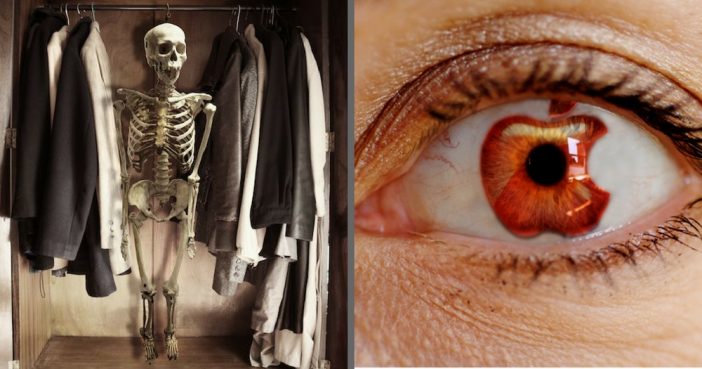
40. Skeleton In Your Closet
In nineteenth-century England, the periodical The Eclectic Review used this idiom in reference to a family who desperately tried to keep a son’s illness secret by hiding him in the closet quite often, especially when guests visited. This is how this idiom got its start, and today we use it to refer to when someone tries to hide a big secret out of embarrassment and shame.
41. The Apple Of My Eye
This Old English phrase was first attributed to King Aelfred (the Great) of Wessex, AD 885, in Gregory’s Pastoral Care, but also appears in Shakespeare’sA Midsummer Night’s Dream.
42. No Spring Chicken
New England chicken farmers generally sold chickens in the spring, so the chickens born in the springtime yielded better earnings than the chickens that survived the winter. Sometimes, farmers tried to sell old birds for the price of a new spring chicken. Clever buyers complained that the fowl was “no spring chicken,” and the term came to represent anyone past their prime.
43. Let Your Hair Down

Parisian nobles risked condemnation from their peers if they appeared in public without an elaborate hairdo. Some of the more intricate styles required hours of work, so of course, it was a relaxing ritual for these aristocrats to come home at the end of a long day and let their hair down.
Phew! Now that that’s settled, I can finally “let my hair down”!
Sources: The List: 25 Startling Origins Of Popular Idioms & Stylist: Everyday sayings explained
Sources: Stylist & list25
Tell us what we missed in the comment section below!
AND, If you LIKE this story, please SHARE this story with your Facebook friends and your family!
Related:
Old Fashion Terms For Things We Use Everyday
The Origins of a Few of Our Favorite Star Trek Lines
